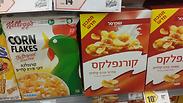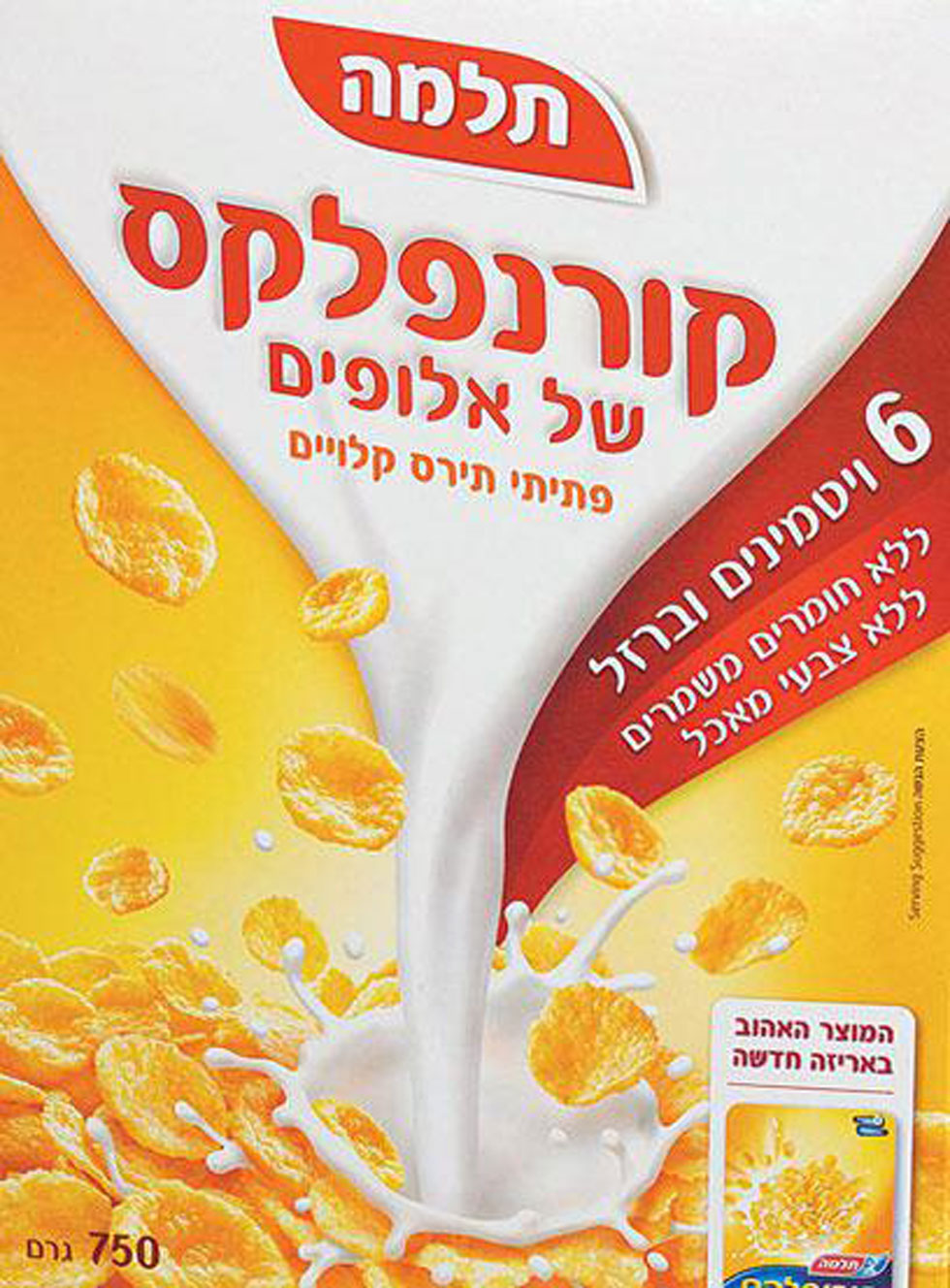
Kellogg's and Unilever Cornflakes
Salmonella in cornflakes: 'I don't trust Unilever products anymore'
Unilever tried to hide findings of contamination on its production lines of cornflakes and DeliPecan cereals; Consumers say they are throwing their cereals to the trash despite company's assurances that nothing contaminated was released for consumption.
Consumers have expressed anger with the Unilever food company, whose flagship products- cornflakes and DeliPecan - have been found to be contaminated as a result of serious malfunctions on the production lines.
Anger was increased further when in light of the company’s insistence that it did not allow defected products into the market. So serious has the situation become, retailer chains have reported that the public has almost completely stopped buying Unilever products.
According to the Health Ministry, which looked into the matter, initial findings show that the contamination caused by bacterium had caused salmonella.
Over the last few days media outlets spoke to Unilever on a number of occasions about the issue. However, Unilever categorically denied the claims and persistently refused to speak to Ynet.
"Our company regularly carries out extremely comprehensive checks on all its products before they are released to the market. Sometimes, those checks cause temporary delays. However, our company never compromises on the quality or intactness of its products. Of course all the company's products, including Telma cereals, are intact and safe for consumption," said Unilever in a statement.
Despirte such claims, large supermarkets chains say that Unilever deliberately misled them: “They told us that there was a shortage of their product because of massive consumer demand ,” explained a spokesman for one of the largest supermarkets in Israel. “Now it turns out that this was simply a complete lie. Their conduct is despicable.”
It is not just the public that Unilever is concealing information from. Ynet's health correspondent, Rotem Elizera, attempted to clarify on Tuesday night if the Ministry of Health was aware of what was happening, and it turned out that Unilever had not elected to report on the occurrence to the ministry.
Sources in the company have said that thousands of boxes of cornflakes are currently being checked, and they may be destroyed later on.
Behind the scandal is Unilever Israel CEO Anat Gabriel who also hid the contamination fears from the public and presented the media with false information. Indeed, this is not the first time that Gabriel’s conduct has resulted in Unilever being embroiled in controversy.
One year ago, Gabriel locked horns with Shufersal - one of the largest supermarket chains in Israel - after which Unilever suffered serious damage to its reputation. At the height of the contention the Shufersal CEO, Itzik Abercohen said, “There is not a single product of Unilever’s that is essential to consumers.”
It is reasonable to assume that Gabriel will be forced to provide answers to Unilever’s global headquarters - one of the largest food corporations in the world - and explain the severe damage she has caused to its reputation in Israel which has stemmed from her management.
Regular consumers have expressed their dismay at the dishonest statements fed to the media by the company.
“If they had said in advance that there is a problem and their products had not been put on the market, it would have been possible to believe them. But after they lied to the media and said that there is no problem, who can believe them now when they say that there are no defected products on the market. From my point of view this breaks the trust. I won’t be bringing their goods into my home anymore until a new statement is given,” fumed a mother from the Sharon area.
Shira, a mother of two, told Ynet: “I intend to throw the cornflakes I have to the trash this morning. I am not taking any chances. I am shocked that companies hide things like this...They could have had the decency to tell us. They could even have said ‘look, we didn’t deliver our products because we want to protect the health of the consumers. We are throwing out what we have produced despite the costs in order to protect you - our customers.’ But they didn’t have the decency to do this,” she vented. “That is why I don’t trust that they tell the truth when they say that their contaminated products have not been put onto the market. I don’t believe it.”
A number of other children’s breakfast cereals made by Unilever are missing from supermarkets. However, it is not yet known whether this is due to contamination or not.
The case is being widely discussed on social networks. Indeed, one man named Dudu wrote: “Perhaps you will do the decent things for the public and inform us how to check whether the packaging we have in our homes are contaminated or are not? Just to remind you, the main consumers of cornflakes are small children. I suggest that you respond to this urgently.” Many more similar such complaints were uploaded on social network sites.
Unilever released a statement in reply to queries: "Our company regularly carries out extremely comprehensive checks on all its products before they are released to the market. Sometimes, those checks cause temporary delays. However, our company never compromises on the quality or intactness of its products. Of course all the company's products, including Telma cereals, are intact and safe for consumption."












